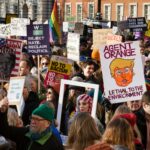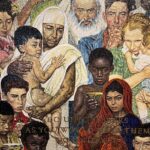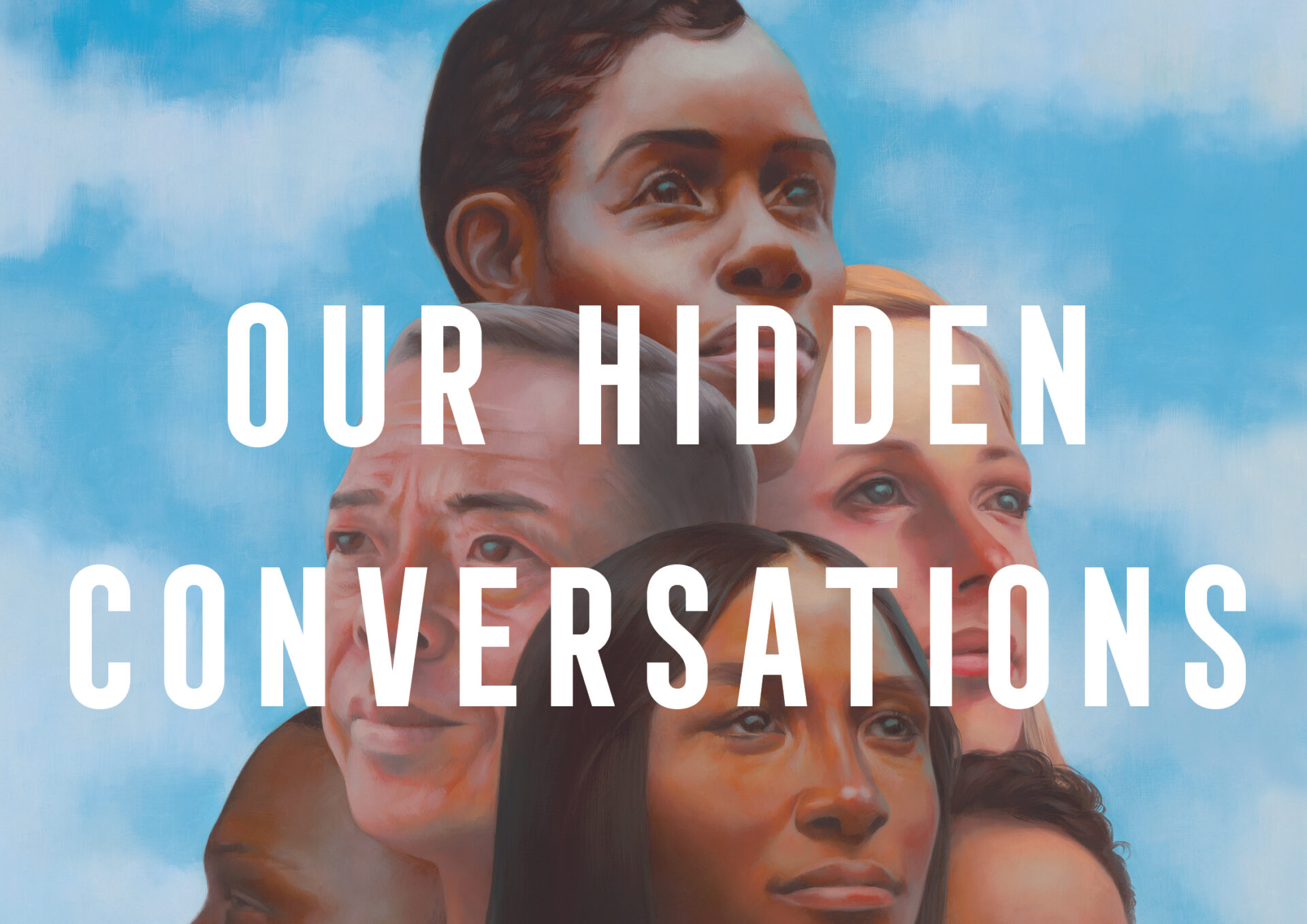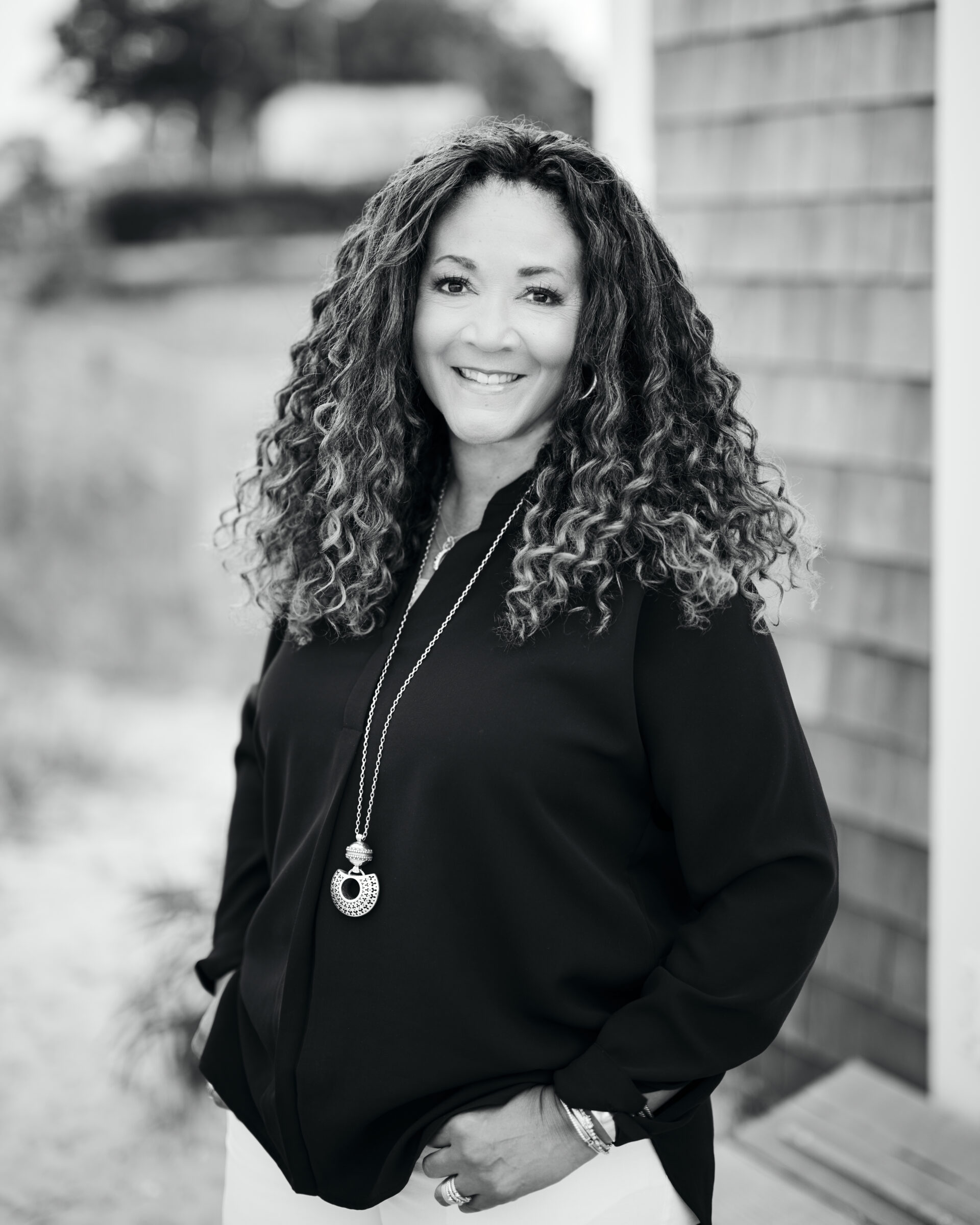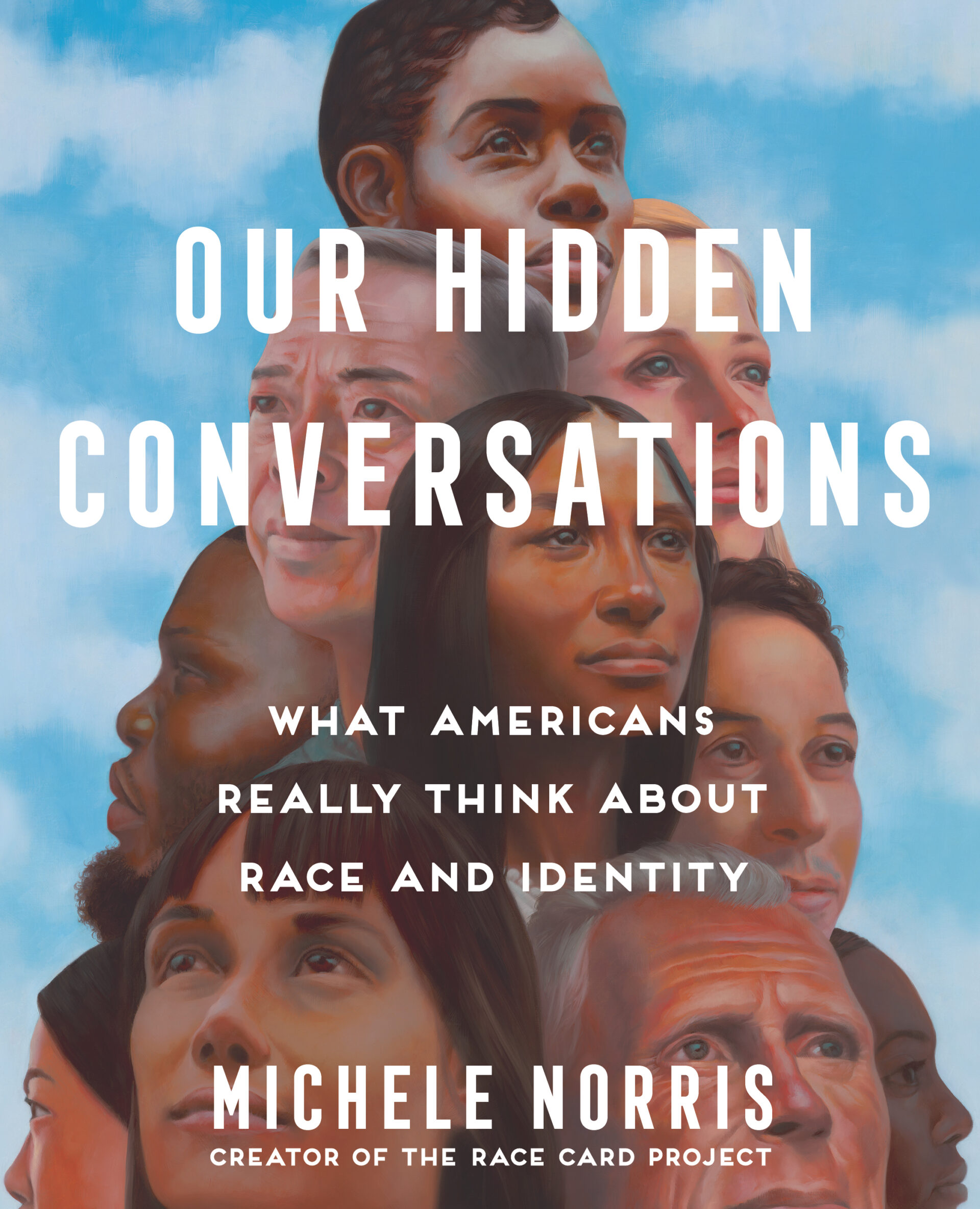On Oct. 25, Michele Norris spoke with Jon Letman for Inkstick Media. Their conversation below has been edited for length and clarity.
JON LETMAN: The 2024 US election is underway. People are voting and barring unforeseen circumstances, on Jan. 20, either Kamala Harris or Donald Trump will be sworn in as the 47th president. After spending 14 years gathering over half a million submissions on race and identity, how do you reconcile the almost unimaginable gulf between what these two candidates represent in how Americans see themselves?
MICHELE NORRIS: I’ve always believed that elections introduce America to itself. America reveals itself in election cycles. I think that has been particularly true since Donald Trump entered our political presidential universe in the 2016 campaign. When people would say, “this is not America,” I would always say, “Well, actually, it is America.” We’re just getting to see a side of America that either hasn’t been evident or that we haven’t been willing to see, or that we have not been looking for. What we’re seeing right now is a manifestation of not necessarily a new America, but some very old strains of thinking that are presenting themselves through political action and rhetoric and voting patterns and polling results.
I think about the election and what it will reveal. America is also revealing itself in the way those elections are accepted or not. We are going to learn a lot about America on Jan. 20 and in the days following the election, when the results become clear. Because I don’t think we’re going to have a clear understanding of who the ultimate winner is on Election Day, it may take a couple of weeks, it could be on the other side of Thanksgiving. And whether those results are accepted or not, and whether that leads to a peaceful transition of power, will be another chance for all of us who are citizens of America to get to know the country and decide if we’re okay with this, and if this is something that is acceptable, and if we are going to keep our eyes open or if we’re going to put blinders back on.
In the 2024 campaign, race, identity and immigration have played a major role. What is so striking is that Donald Trump has been married to immigrants twice and has a Jewish daughter and son in law. JD Vance is married to the daughter of South Indian immigrants. Vice President Harris is the daughter of Jamaican and Indian immigrants, and she has a Jewish husband. Her running mate, Tim Walz, is a vocal supporter and ally of LGBTQ people. So as bitter and divisive as this campaign has been, one could argue that these politicians exemplify the diversity of America. Yet many Americans still insist that the United States is a “White Christian nation.” In a recent PRRI survey one-third (34%) of respondents said that immigrants illegally entering the country are “poisoning the blood of the nation.”
Well, there’s identity as a fact of being and then there is identity as manifest in people’s belief systems. Those two things are not always in concert with each other. Yes, you see diversity on display clearly in the identity profiles of the principals involved in the election, but it’s the rhetoric and policy and the use of the word immigrant and what that has come to mean, because that is a really big elastic word.
Most people are here through some kind of immigration. Unless you are like my family’s descendants, if you were brought here involuntarily and worked in bondage, you usually arrived here through some sort of immigration portal.
When the word immigration is used in the way that you used in the question, we’re not talking about the immigrant class broadly. That political rhetoric is used in general to talk about people who are coming to this country who are Brown, sometimes Black, maybe from Asia, but primarily Brown and Black.
One of the things that I’ve discovered is that a lot of people choose to call themselves “newcomers” instead of immigrants when they’re new to America. It’s a term that people use. It’s very common in Minnesota, you’ll hear Tim Walz talk about “newcomers” sometimes, and that is specifically so that people are trying to distance themselves from a word that has been made toxic because it’s been associated with people who are coming illegally, even though it’s often used to describe people who are coming to America through legal means. It’s often doubling down on the idea that they’re here illegally, which is a way of saying we don’t want them here and to separate themselves from people who are allegedly “poisoning the blood of America.”
If you just take that term, that is the language that was used around miscegenation, the “one-drop rule,” and the idea that to be American by default meant to be someone who was White, usually someone who was Christian, and someone whose bloodline is not adulterated with anything other than that.
But at the base of all of this, the reason that this rhetoric is often successful — and I can say this because I’ve collected all these stories and because I spent so much time talking to people — is that people are afraid of a changing America. In many ways they’re afraid of an America that has already arrived.
America is steaming toward majority minority status. The birth patterns in this country are such that the majority of young people in America are not White. And those numbers will continue to tick forward and the demographic changes are something that people are uncomfortable about. We have a political industry that is dedicated to stoking those fears, as opposed to trying to allay those fears and to create a world where people learn how to coexist. There are a lot of people who are committed to division, and often they’re committed to divisions because those divisions benefit them, because it helps them maintain power. Fear is a very powerful drug.
One of the reasons is that there is messaging around “they’re coming, they’re going to change your way of life, they’re going to perhaps seek retribution. Your life will no longer be the same if America is not the America that you recognize.” One of the reasons that’s such a potent message is because if you look at our history with clear eyes and how people who are minorities have been treated in America, you can reasonably understand why people would be concerned about becoming minorities. And instead of countering that message with the notion that there’s enough for everyone in a country as large as ours and a country as wealthy as ours, in terms of intellectual wealth, in terms of mineral wealth, in terms of geographic wealth, in terms of spiritual wealth, that there is enough for everyone in this country, that’s not the message that a lot of people are getting. Instead, a lot of people are getting a message that “you should be afraid of the people that are coming because they might seek retribution, because they might take your job, because they might change your way of life.”
In fact, if you look again at the history of America, there’s another history that you can see, and that is that immigrants have come to this country, and in almost every case, with each new wave of immigration, it has made this country stronger. It has made this country more innovative. It has made this country more interesting. It has made this country the patchwork quilt that it is today that actually stands out among nations. One of the reasons that people come here is because of our diversity and because of the strength of our diversity. Somehow that has been turned on its head in this election cycle. I’m not saying that’s the only reason that we are as divided in this nation politically, but fear and anxiety and the stoking of fear and sort of the hot gust of grievance that has been used to fire up one part of the electorate has been undeniably effective as a political message and has led us to where we are today.
In a hostile and combative interview at the National Association of Black Journalists convention in July, Donald Trump suggested that Vice President Harris was only promoting her Indian heritage and that she “suddenly happened to turn black.” And he asked, “Is she Indian or is she Black?” Is this just cheap political opportunism, or do you see these comments as representative of the views of large numbers of Americans who don’t recognize race and identity as something more complex than this binary either-or choice?
I’m not going to try to explain what Donald Trump meant by a statement like that. I don’t know what was at work there. He had referred to her, I think, as African American prior to that. In a court of law, I think they would make a case for prior knowledge. I’m going to turn it away from Donald Trump, but people in general sometimes struggle with how to talk about race and identity. We think that it’s a box of fixed certitude, and you check one box and that’s the only thing that you are. The fact is that many of us are many things all at once. In an increasingly multicultural America, people have different manifestations of identity. It doesn’t mean that they’re Black one day and Indian one day and American another day. It means that they are all of those things all at once. And sometimes those things may be more manifest because you’re attending an HBCU or because you’re on the dance floor and that part of your culture is more evident, or because you’re in an Indian restaurant and you’re enjoying dal, you know. People are complex. Period. You could just end the sentence there, like period. Exclamation point. People are complex. Americans are complex.
People in general sometimes struggle with how to talk about race and identity. We think that it’s a box of fixed certitude, and you check one box and that’s the only thing that you are. The fact is that many of us are many things all at once. In an increasingly multicultural America, people have different manifestations of identity.
When you bring in racial identity, there are all kinds of complexities around that. I will go back to the statement that Donald Trump made just to say this: that sometimes when a statement like that is made, it is about someone else, but it is actually more revealing of the person saying those words. I think in that case, it probably revealed something about his discomfort. Because I think most people who have watched Kamala Harris over many years now don’t seem to be as confused about that.
In your book, you wrote about America’s unfulfilled need to reckon with its legacy of slavery and other aspects of its history. You cite Germany as offering an alternative to avoidance and denial of its own history. You describe how Germans have confronted their Nazi past through public education, police training, and a legal framework that punishes Holocaust denial. You also write about physical memorials, large and small, including 90,000 stolpersteine small brass stumbling blocks found around Germany. You say that America’s path forward is shaky, but you pointed to positive steps, such as President Biden meeting with living survivors of the 1921 Tulsa Black Wall Street massacre. Just today, President Biden issued a formal apology for 150 years of government institutionalized dispossession and abuse of Native American children. You quoted Biden who said, “great nations come to terms with their dark sides.” Politics aside, do you think America is still on that path?
On the path to reconciliation with our past? We seem to be less committed to that path. When I wrote that it was before America was engaged in this fracas over so-called critical race theory. I think America has a harder time looking over its shoulder. I held Germany out as an example. Germany is not perfect but, for a number of reasons, they decided to look squarely over their past at an evil chapter and reconcile with it, and in doing so, create remembrances and memorials and pathways to remembering and even honoring people who were victimized by a reign of terror.
That is something that we have had a harder time doing in America, whether it involves the Indigenous population of America, whether it involves the long history of enslavement, whether it involves the long history of indentured servitude that also included White people, who were first brought to America or whether it involves internment camps or other moments where this country has lost its way.
I believe strongly that it’s important to look over your shoulder at these difficult chapters, not to rub anybody’s nose in it, necessarily. Not to engage in the gnashing of teeth and wailing for no other reason than to be provocative. I think it is important because it serves as guardrails to a returning evil. It helps you understand and appreciate and acknowledge and express gratitude for the progress that has been made. It creates a pathway to atonement and apology.
If we don’t look back at those moments where we have so clearly lost our way and take the lessons from that and understand how and why that happened, and understand the human instinct that allowed that to happen, then we run the risk of something like that happening again, and we run the risk of never fully appreciating the progress that we have made as a country, because we talk about this as ancient history. It was not that long ago. You’re talking about someone’s great-great grandfather or great-great-great grandmother. One of the things that just blew my mind when I was doing the research on this is to realize that Ronald Reagan and Harriet Tubman walked the earth at the same time. The longest living Confederate generals were still farming in America or rocking on their front porch when people like Betty White and Norman Lear were in kindergarten. I’m not talking about ancient history, and the vestiges of some of that are clearly still with us.
I believe strongly that it’s important to look over your shoulder at these difficult chapters, not to rub anybody’s nose in it, necessarily. Not to engage in the gnashing of teeth and wailing for no other reason than to be provocative. I think it is important because it serves as guardrails to a returning evil.
Part of the danger of not studying our history also is that when people start talking about a return to fascism and people don’t really understand what fascism is, they don’t understand what that leads to. When you have the former chief of staff talking about a candidate who is praising Adolf Hitler and is saying that he wishes that he had Nazi generals of his own. If you don’t really understand what that led to and what the fight against that led to on a vast scale, yes, in terms of tremendous loss of human life in the Holocaust, but also in the battles and the battlefield in Poland, in France. War is ugly, fascism is ugly. These are not just abstract political theories. They lead to the extermination of human beings. Yes, a change in a way of life, a loss of safety. But mass deportation, extermination, disappearances of people and that is why it is also important to study a difficult history as a guardrail against a returning evil, because something like that is evil.
One year after the October 7th Hamas attack on Israel, Gaza has been destroyed. More than 42,000 people have been killed, with other estimates much higher. The war has spread to Lebanon and the West Bank. There have been bombings in Yemen, assassinations in Iran, and the Middle East is crumbling into a disastrous regional war. Here in the United States, the conflict has opened deep fissures between Muslim and Arab communities and the Democratic Party and within Jewish American communities and families. Islamophobia and anti-Semitism are on the rise, and the conflict is being used to fuel hatred and distrust. In your work and all the talks that you’ve given and people you’ve met, have you seen examples of this situation bringing people together? Whether it’s Muslims and non-Muslims or Jews and Muslims or whoever it might be related to this situation?
This may be an example where the most productive conversations that exist around a conflict as fraught as this are probably the ones that you don’t know exist. They happen in very quiet places, in the basements of a mosque or a synagogue, on the side of a soccer field where parents whose kids go to school together are forced together to talk. I know in the inbox at The Race Card Project we have submissions that have come in from more than 100 countries, all 50 states. We’ve been seeing cards coming in from Jordan. There’s some group in Jordan that’s trying to bring people together to have a conversation and they’re using The Race Card Project and six-word stories as a way for people to express their views. That heartens to know that with this crazy project that starts with just six words, someone, somewhere has found perhaps a tool to try to allow people to talk to each other.
The world is a very dangerous place right now and it should remind us of the importance of having people in power who have the right kind of temperament, who are not impulsive, who are not interested in knee jerk retribution, who are willing to stand tough and stand tall, but also to listen and sometimes to listen to people that they don’t agree with before acting. You can point to places that are in the news, you can point to other places like Azerbaijan which are not in the news, but are still powder kegs. If you look, there are flashpoints all over the globe right now. I hope that people think not just about the America that they want to live in, but globally, the world that they want to live in, and America’s role in that.
I was really moved by the section of your book about the photo at the front door of your home. I think it’s very powerful and very important.
Let me just explain that, because if people haven’t read the book, they don’t know what that means. I keep a photo at the front door in the foyer of our house that shows our family on vacation, and I change it over time so it sort of looks like my kids as they grow and their hairstyles change.
Leonard Pitts is a columnist for the Miami Herald, and he was writing about being doxxed in his own house. Someone had called the police and said, “that guy that lives at that house is doing bad things to his family.” They do that and the police show up at your house and they think you’re doing bad things. In this case, Leonard had written about this, and the person who showed up at his house recognized him because their kids played soccer together or something. But it made me think and there had been all these stories in the news about people who police called someone because he was entering an apartment building and he didn’t look like he belonged there and it was because he was a Black man. And it just made me think, we live in an integrated neighborhood — actually, it’s not that integrated, we’re one of the few Black families in the neighborhood. It just made me think, let me just put this picture here as an insurance policy so people know that we reside in the house we live in.
My husband thought, well, it’s a great picture, but do we really need to do this? Then we were out of town. Our son was home, a college student attending college at my dining room table during Covid. We had gone out of town and he was still here. He’s hungry in the middle of the night. He’s watching tennis because he’s a tennis player and he watches tennis in real time, so if it’s overseas, he watches at 3 a.m. He’s watching tennis and accidentally sets off the alarm. And when the police come, they ask him all kinds of questions because it’s the middle of the night… And the police asked him, “do you live here? How long have you lived here?” We had recently moved, so he was trying to do the math in his head and remembered the picture and he points to the picture near the door and he says, that’s us, that’s my family. And the temperature in the conversation changed at that point because the police [realized] “oh, yeah, that’s you.”
The interesting thing about this is when I go on a book tour, so many people have said, “I keep a picture at the front door now.” But you know what’s interesting? They’re not all Black people. People do it because they think, I just want people to know that that’s me. And some of them are older people whose sons or daughters have married across a color line. It’s assumptions of who belongs where. It was a column I wrote, and I decided to include it in the book because I thought it might touch people. It turns out that in many of the places I go, that’s the chapter people really relate to.
Throughout the book you examine questions of expectation, looking at situations where a person is questioned because they don’t match someone else’s expectations. You quote people who say, “Yes, they really are my children,” or “I’m his mother, not the nanny.” Other six-word stories of expectation included, “You’re pretty for a Black girl” or “didn’t sound Chinese on the phone” or “really, but you don’t look Mexican.” It goes back to what we expect of people and what is expected of us. How can we reconsider that?
Well, through proximity. Bryan Stevenson, who created the Equal Justice Initiative in Montgomery, Alabama, always talks about the importance of proximity. Michelle Obama talks about the importance of proximity. It’s hard to hate people up close. I think that’s true. When you start to see their humanity and you start to see, yeah, we’re different, and we don’t agree with each other. But there are certain things that, you know—again, it’s the importance of studying history. One of the reasons that in segregated America, they focused so much on the kids, they didn’t want the kids to go to school together. They didn’t want them to play sports together. You know why? Because they realized that once the kids saw each other, they liked each other. It was easier to keep people apart and to maintain this sort of ruse of the scary people over there when there was this moat of boiling oil between people. But when they actually got together, the kids were like, wait, you know, they listen to each other’s music. The gig was up. So, proximity is important.
Sometimes people are making those assumptions because of limited exposure. Maybe this book is an attempt at that, for people who don’t have exposure. You’re exposed to a thousand stories in this book and I guarantee that some of them will offend you. Sorry, but it’s race and we’re holding a mirror up to society, so you’re not going to like everything you see. So some of the stories are, “Oh, that makes me feel uncomfortable, I don’t know if I like that,” but I also guarantee that there will be at least one and probably several stories that you will relate to or that will pique your interest and you will be proximus to people who are being very honest and very candid, and allow you to see a mosaic of America that maybe is not evident to you in your place of work or worship, or in the neighborhood that you live in.






